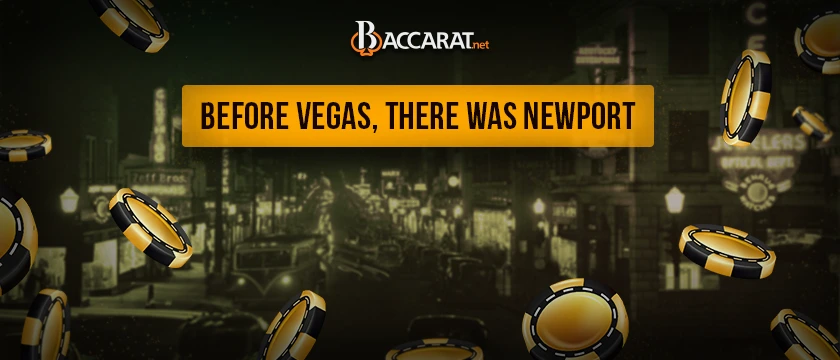How Newport Paved the Way for Las Vegas

Today, Las Vegas is synonymous with casinos, luxury hotels, and vibrant nightlife. For many online baccarat players, it is the place they dream of visiting when they think of playing in a land casino. However, contrary to popular belief, the city hasn’t always been America’s leading gambling destination. In fact, until relatively recently, there was another American city that had significantly more casinos, even if they did operate entirely illegally.
When Nevada legalized gambling in 1931, Las Vegas was far from the gambling center it is today. Initially, the city was overshadowed by Reno, which already had 21 casinos compared to Las Vegas’s modest eight. Yet even Reno was nothing in comparison to Newport, Kentucky, a small city across the river from Cincinnati that, by the early 1940s, was home to around forty casinos, despite gambling never having been legal there.
From Bootlegging to Underground Casinos
There are a number of reasons why Newport emerged as a gambling hub. It was largely a result of its strategic geographic location near major urban areas, coupled with extensive corruption among local officials. During Prohibition, Newport became a center for the bootlegging industry, a legacy largely established by George Remus, a former Chicago attorney turned notorious rumrunner. The illegal alcohol trade provided the basis for widespread illegal gambling and vice, which was aided by corrupt law enforcement, conveniently ignoring the thriving underground economy.
The rise of organized crime solidified Newport position as a gambling hotspot in the 1930s and ‘40s. Mob groups, such as the Cleveland Syndicate, recognized Newport’s potential and quickly took control of the city’s casinos. The syndicate used harsh tactics, including threats, intimidation, and arson, to ensure local casino operators fell in line. When local entrepreneur Peter Schmidt refused to sell his popular Beverly Hills Club, it was burned to the ground. Schmidt rebuilt, but eventually, relentless mob pressure forced him to give up control.
Popular casinos, such as the Beverly Hills Club, the Flamingo, the Yorkshire Club, the Primrose Club, and the Lookout House, were defining features of Newport, and they attracted large numbers of visitors eager for gambling, fine dining, and high-quality entertainment. The clubs provided a blueprint for the style and operation of future casinos in Las Vegas. Renowned entertainers such as Liberace, Milton Berle, and Steve Lawrence regularly performed at the casinos, which helped to attract even more people to Newport.
Eliminating Corruption in the 1950s and 1960s
However, the Newport position as America’s unofficial gambling capital began to change in the early 1950s. The Kefauver hearings, which were a series of Senate investigations into organized crime, exposed the extensive criminal networks operating across the nation and a major focus was placed on Newport. The heightened scrutiny gradually reduced the city’s acceptance of gambling operations.
A major turning point was in 1961 when reformist sheriff candidate George Ratterman was falsely implicated in a prostitution scandal at the Glenn Hotel. The incident attracted national attention and shone a spotlight on the extent of corruption in Newport. In response, Attorney General Robert F. Kennedy sent FBI agents to dismantle the criminal enterprises dominating the city, which marked the beginning of the end for Newport’s gambling industry.
Faced with relentless pressure from law enforcement and attracted by Nevada’s legally sanctioned gambling operations, organized crime figures gradually moved their operations. Las Vegas, with its regulated and lucrative casino operations, became increasingly appealing. Leading mob figures, who once dominated Newport’s illegal gaming venues, relocated to Nevada and were a driving force behind the rapid development and success of the Las Vegas casino industry.
The Emergence of Las Vegas
By the late 1960s, Newport’s casinos had vanished. The city’s gambling and entertainment scene had disappeared and was replaced by quiet residential streets and small businesses. Today, Newport is a modest city and its murky past has largely been forgotten. Its population has reverted to levels similar to its pre-gambling era and it rarely sees the type of celebrity guests that once made the city famous.
However, for those interested in the history of America’s gambling industry, Newport’s legacy remains extremely important. Its brief but significant time as the nation’s leading gambling city is unknown to many and provides a fascinating insight into the challenges facing the country in the first half of the twentieth century.



